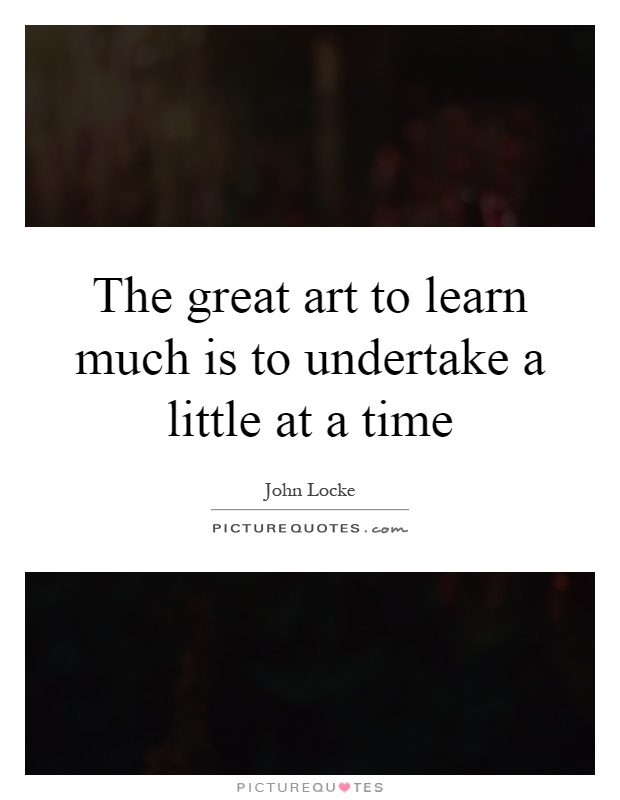The great art to learn much is to undertake a little at a time

The great art to learn much is to undertake a little at a time
John Locke, a prominent English philosopher, is known for his contributions to the fields of epistemology, political theory, and education. One of Locke's key beliefs was that learning should be approached gradually and systematically, with individuals taking on small tasks or concepts at a time in order to fully grasp and understand the subject matter. This idea is encapsulated in the quote, "The great art to learn much is to undertake a little at a time."Locke believed that the human mind is like a blank slate, or tabula rasa, at birth, and that knowledge is acquired through experience and observation. He argued that individuals should approach learning in a methodical and incremental manner, building upon their existing knowledge and skills. By taking on small tasks or concepts at a time, individuals can more effectively absorb and retain information, leading to a deeper understanding of the subject matter.
This approach to learning is particularly relevant in today's fast-paced and information-saturated world. With so much knowledge and information available at our fingertips, it can be overwhelming to try to learn everything at once. By breaking down complex subjects into smaller, more manageable chunks, individuals can make learning more manageable and enjoyable.
Furthermore, Locke believed that learning should be an active and engaging process. By undertaking a little at a time, individuals can more actively participate in their own learning, asking questions, seeking out new information, and making connections between different concepts. This active engagement with the material can lead to a deeper understanding and appreciation of the subject matter.












 Friendship Quotes
Friendship Quotes Love Quotes
Love Quotes Life Quotes
Life Quotes Funny Quotes
Funny Quotes Motivational Quotes
Motivational Quotes Inspirational Quotes
Inspirational Quotes